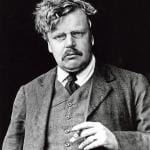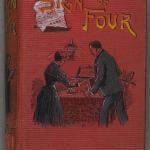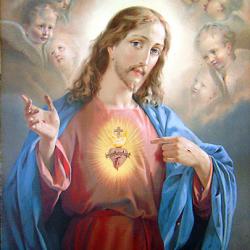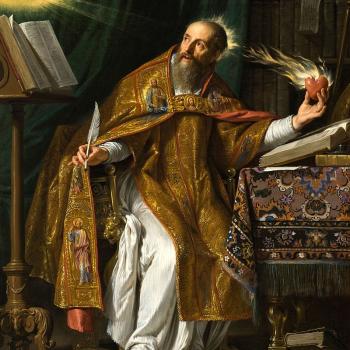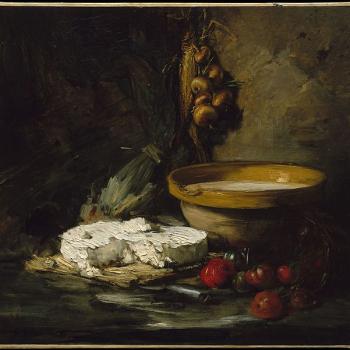Why do some people believe in Christianity and some don’t?
G.K. Chesterton has some insights based on why he is a follower and believer in Christ and why he became Catholic.
Perhaps it will give you some insight into your own reasons for what you believe.
All these quotations are taken from Chesterton’s works which are now in the public domain.
Why I Believe In Christianity
If I am asked, as a purely intellectual question, why I believe in Christianity, I can only answer, “For the same reason that an intelligent agnostic disbelieves in Christianity.” I believe in it quite rationally upon the evidence. But the evidence in my case, as in that of the intelligent agnostic, is not really in this or that alleged demonstration; it is in an enormous accumulation of small but unanimous facts.
The secularist is not to be blamed because his objections to Christianity are miscellaneous and even scrappy; it is precisely such scrappy evidence that does convince the mind. I mean that a man may well be less convinced of a philosophy from four books, than from one book, one battle, one landscape, and one old friend. The very fact that the things are of different kinds increases the importance of the fact that they all point to one conclusion. Now, the non-Christianity of the average educated man to-day is almost always, to do him justice, made up of these loose but living experiences. I can only say that my evidences for Christianity are of the same vivid but varied kind as his evidences against it. For when I look at these various anti-Christian truths, I simply discover that none of them are true. I discover that the true tide and force of all the facts flows the other way. (1)
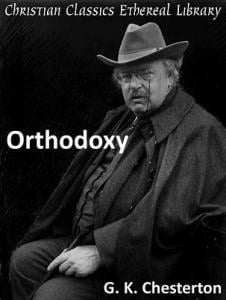
Why I Am A Catholic
The difficulty of explaining “why I am a Catholic” is that there are ten thousand reasons all amounting to one reason: that Catholicism is true. I could fill all my space with separate sentences each beginning with the words, “It is the only thing that…” As, for instance,
(1) It is the only thing that really prevents a sin from being a secret.
(2) It is the only thing in which the superior cannot be superior; in the sense of supercilious.
(3) It is the only thing that frees a man from the degrading slavery of being a child of his age.
(4) It is the only thing that talks as if it were the truth; as if it were a real messenger refusing to tamper with a real message.
(5) It is the only type of Christianity that really contains every type of man; even the respectable man.
(6) It is the only large attempt to change the world from the inside; working through wills and not laws; and so on.
Or I might treat the matter personally and describe my own conversion; but I happen to have a strong feeling that this method makes the business look much smaller than it really is. Numbers of much better men have been sincerely converted to much worse religions. I would much prefer to attempt to say here of the Catholic Church precisely the things that cannot be said even of its very respectable rivals. In short, I would say chiefly of the Catholic Church that it is catholic. I would rather try to suggest that it is not only larger than me, but larger than anything in the world; that it is indeed larger than the world. But since in this short space I can only take a section, I will consider it in its capacity of a guardian of the truth. (2)
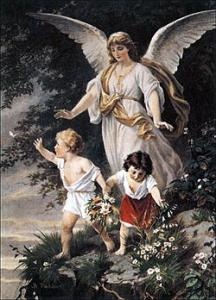
The Convert
The Catholic Church loves nations as she loves men; because they are her children. But they certainly are her children, in the sense that they are secondary to her in time and process of production. This is, as it happens, a very good example of a fallacy that often confuses discussion about the convert.
[Some] people very often use [a] catchword to the effect that [the convert] is forced to believe this or that. But it is not really a question of what a man is made to believe
but of what he must believe; what he cannot help believing.
He cannot disbelieve in an elephant when he has seen one; and he cannot treat the Church as a child when he has discovered that she is his mother. She is not only his mother but his country’s mother in being much older and more aboriginal than his country. She is such a mother not in sentimental feeling but in historical fact. He cannot think one thing when he knows the contrary thing. He cannot think that Christianity was invented by Penda of Mercia, who sent missionaries to the heathen Augustine and the rude and barbarous Gregory. He cannot think that the Church first rose in the middle of the British Empire, and not of the Roman Empire. He cannot think that England existed, with cricket and fox-hunting and the Jacobean translation ll complete, when Rome was founded or when Christ was born.
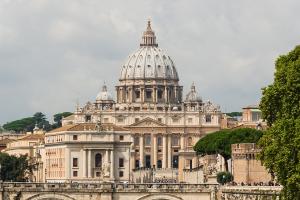
It is no good talking about his being “free” to believe these things. He is exactly as free to believe them as he is to believe that a horse has feathers or that the sun is pea green. He cannot believe them when once he fully realises them; and among such things is the notion that the national claim upon a good patriot is in its nature more absolute, ancient and authoritative than the claim of the whole religious culture which first mapped out its territories and anointed its kings. That religious culture does indeed encourage him to fight to the last for his country, as for his family. But that is because the religious culture is generous and imaginative and humane and knows that men must have intimate and individual ties.
But those secondary loyalties are secondary in time and logic to the law of universal morality which justifies them. And if the patriot is such a fool as to force the issue against that universal tradition from which his own patriotism descends, if he presses his claim to priority over the primitive law of the whole earth–then he will have brought it on himself if he is answered with the pulverising plainness of the Book of Job. As God said to the man,
“Where were you when the foundations of the world were laid?”
We might well say to the nation,
“Where were you when the foundations of the Church were laid?”
And the nation will not know in the least what to answer– if it should wish to answer–but will be forced to put its hand upon its mouth, if only like one who yawns and falls asleep. (3)
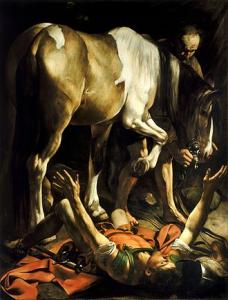
If you want to read more of this great writer’s works check out
G. K. Chesterton’s Works on the Web
- Orthodoxy (1908) Christian Classics Ethereal Library
- Why I Am a Catholic From Twelve Modern Apostles and Their Creeds (1926)
- THE CATHOLIC CHURCH AND CONVERSION (1926)


